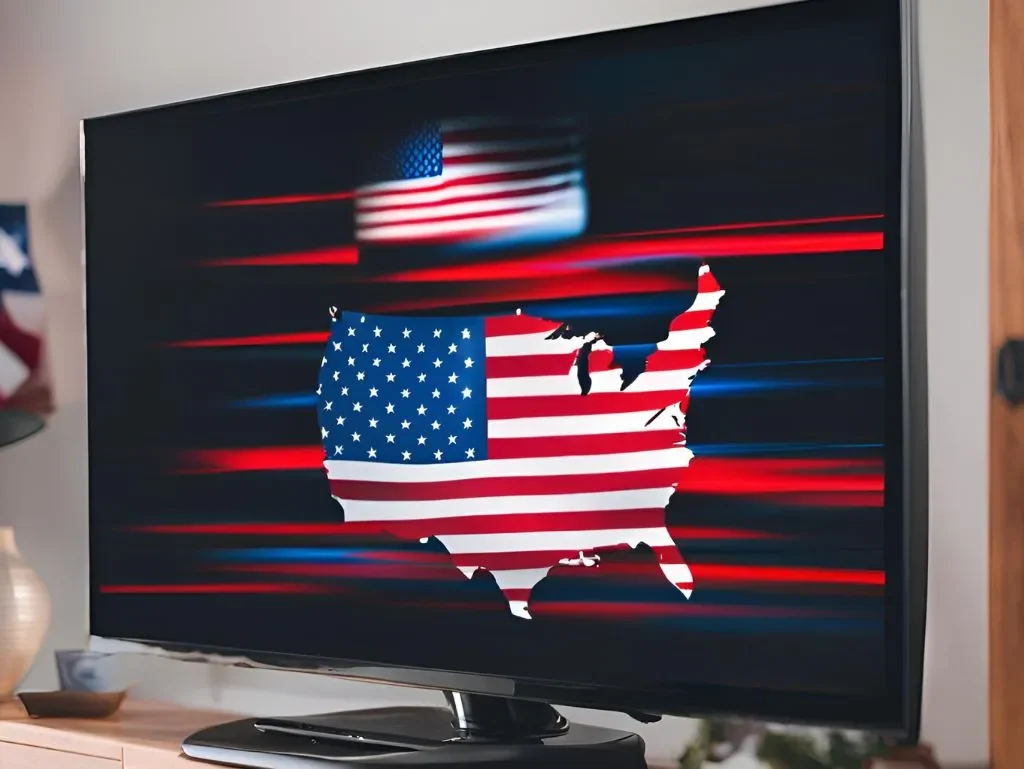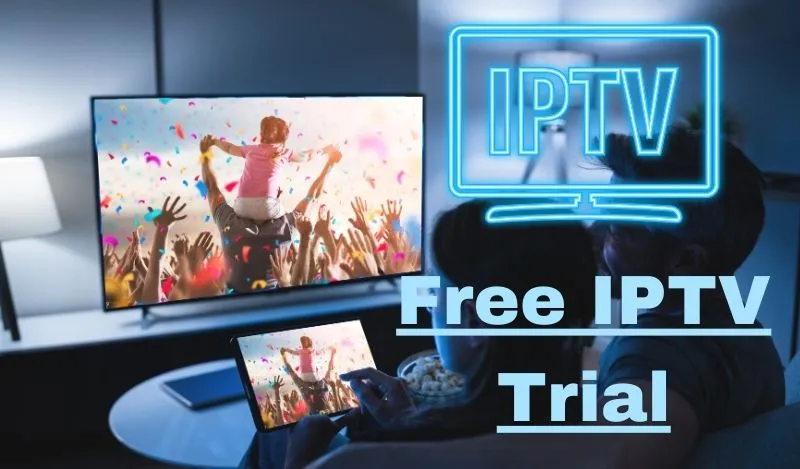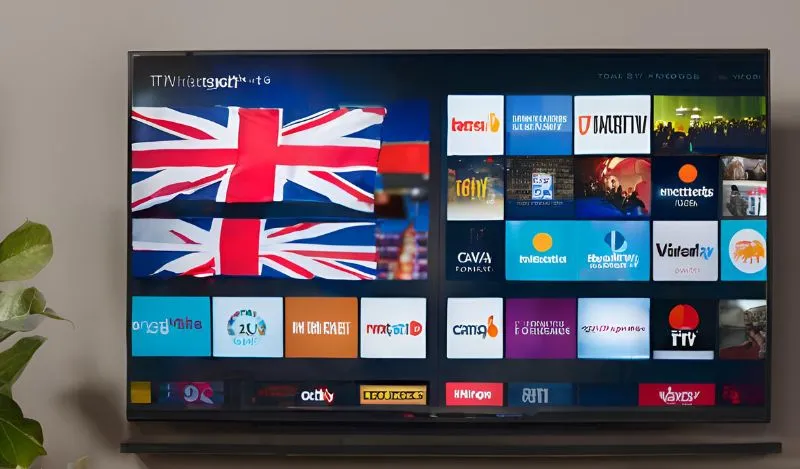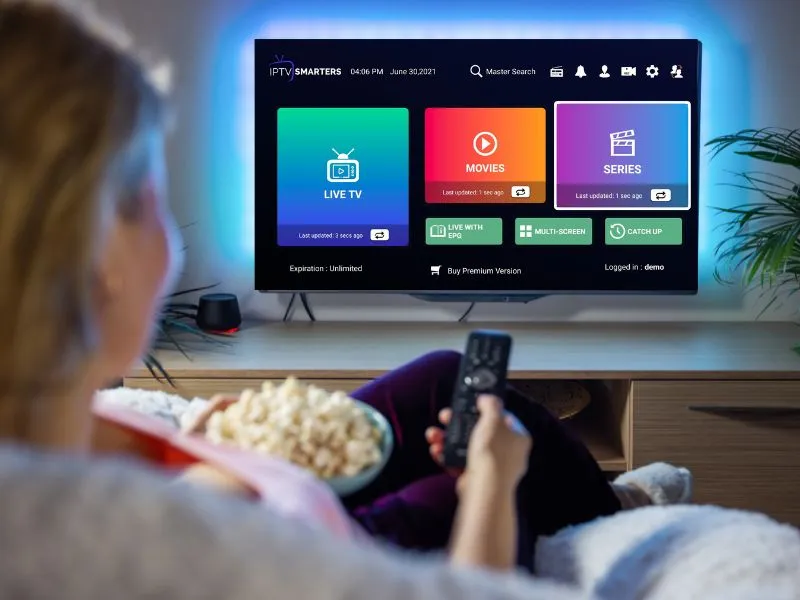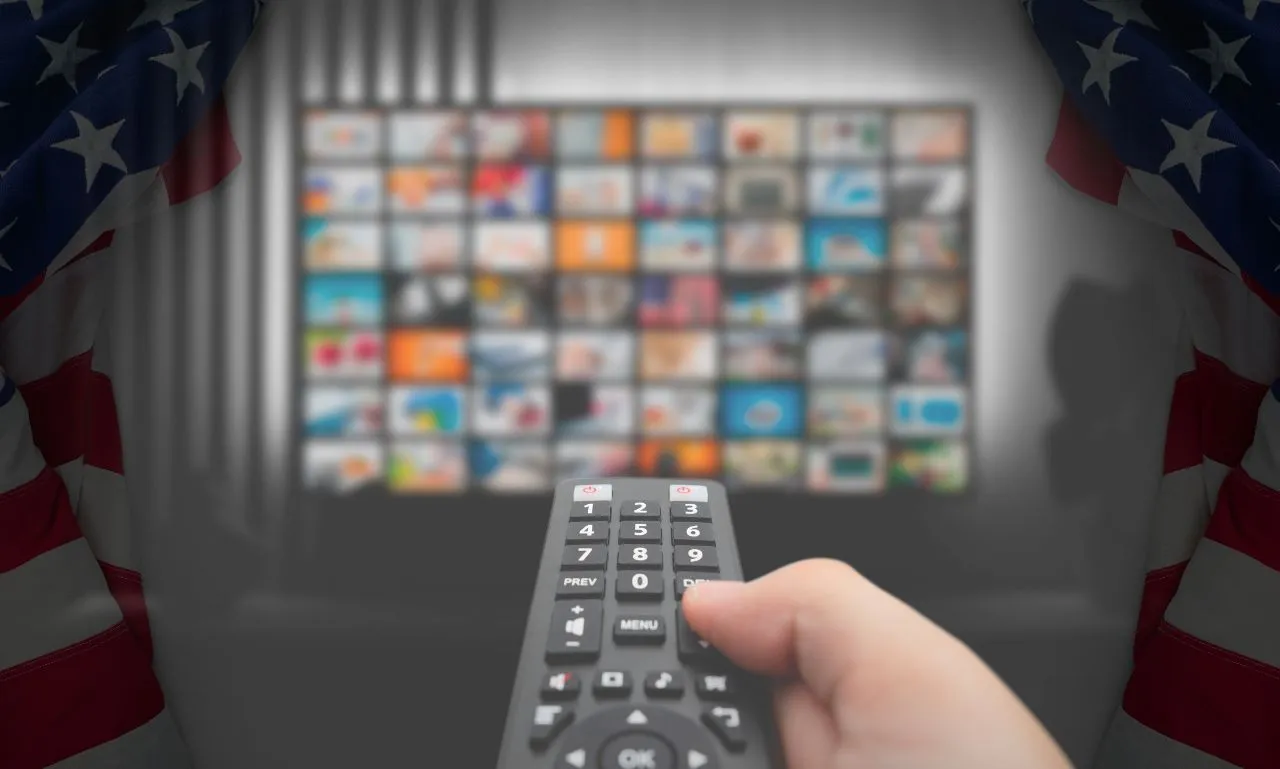Is IPTV Legal in the US?
IPTV, or Internet Protocol Television, is becoming a popular choice instead of traditional cable TV in the US. It offers more channels because it costs less to set up. But, as more people stream TV shows and movies, authorities are checking if IPTV follows US laws. This article will look into IPTV’s legal issues in the US, how different services compare, and the risks of using legal or illegal IPTV.
Key Takeaways
- IPTV is becoming a popular alternative to traditional television methods in the US.
- The legality of IPTV services is under scrutiny by regulators and copyright holders.
- Understanding the distinctions between legal and illegal IPTV services is crucial for consumers.
- Compliance with US copyright laws is key for IPTV providers.
- Using illegal IPTV can lead to significant legal risks for consumers.
- Legitimate IPTV services exist and offer a wide range of programming options.
Understanding IPTV and Its Functionality
Television viewing has changed a lot with new technology. IPTV, or Internet Protocol Television, is a modern way to watch TV. It lets users stream shows over the internet instead of traditional cable or satellite.
What is IPTV?
IPTV uses internet protocols to send TV programs directly to devices. This means users get lots of content whenever they want, like live shows, on-demand, and recorded ones. IPTV also lets you pause, rewind, and fast-forward live shows, which is different from old TV formats.
How IPTV Differs from Traditional Cable
IPTV has some big advantages over cable TV:
- Content Delivery: IPTV uses the internet to send data, not cables like cable TV.
- Viewing Flexibility: You can watch IPTV on devices like phones, tablets, and smart TVs, making it easier to watch.
- Subscription Models: IPTV offers pay-per-view or single channel subscriptions, unlike cable’s bundled packages.
| Feature | IPTV | Cable Television |
|---|---|---|
| Delivery Method | Internet Protocols | Coaxial/Fiber Optics |
| Device Accessibility | Multiple Devices | Set-top Boxes |
| Content Variety | On-demand, Live, Recorded | Live, Limited On-demand |
| Payment Options | Pay-per-view, Subscription Per Channel | Bundled Packages |
IPTV and cable TV are very different. IPTV offers a flexible, interactive way to watch TV. Knowing these differences helps users pick the best viewing options for them.
The Legal Landscape of IPTV in the US
Understanding the legal rules for IPTV in the United States is key for both users and providers. US copyright laws and the FCC’s actions shape IPTV’s legality here. This part explains these laws and rules, making IPTV’s complex world clearer.
Overview of US Copyright Laws
US copyright laws are vital for protecting creative works, like TV shows. They make sure creators get paid for their work. Breaking these laws can lead to big fines, affecting IPTV providers and users who use content without permission.
This means IPTV services must have the right licenses to avoid breaking the law.
The Role of the Federal Communications Commission (FCC)
The FCC is a major regulator in the US telecom sector, watching over IPTV. It sets rules to keep the competition fair among providers. The FCC’s role in IPTV is big, making sure services follow the law for broadcasting and digital content.
It also works to stop any one company from dominating the market, helping IPTV services stay healthy.
| Aspect | US Copyright Laws | FCC Role in IPTV |
|---|---|---|
| Purpose | Protects creators and their works | Regulates telecommunications and ensures fair competition |
| Focus | Copyright infringement and penalties | Broadcast and digital content distribution rules |
| Impact on IPTV | Requires licensing and compliance for content | Guides operations and limits monopolistic behavior |
Is IPTV Legal in the US?

The legality of IPTV services in the US depends on copyright laws. It’s key to know the difference between legal and illegal IPTV services. This helps consumers access content the right way.
Defining Legal vs. Illegal IPTV Services
Legal IPTV services have licenses from content creators. This lets them share content legally. Users get to watch shows without breaking the law. Illegal IPTV services don’t have these licenses. They risk legal trouble for users.
Choosing the right IPTV provider is crucial. It’s about picking one that follows the law.
Examples of Legitimate IPTV Services
There are many legal IPTV options for consumers. Here are some well-known ones:
| Provider | Features | Subscription Model |
|---|---|---|
| Hulu Live | Live TV, On-Demand content, Cloud DVR | Monthly subscription with various tiers |
| YouTube TV | Unlimited cloud DVR, multiple channel options, user-friendly interface | Monthly subscription with add-on options |
| Sling TV | Customizable channel packages, affordable pricing, no contract required | Monthly subscription with a la carte options |
These services offer lots of channels and focus on legal content sharing. Choosing wisely lets users enjoy their favorite shows safely.
Factors Affecting IPTV Legality
The legality of IPTV services depends on several key factors. These include licensing and how content is shared. It’s important for both users and providers to understand these aspects to follow IPTV laws.
Service Licensing and Compliance
Licenses are crucial for IPTV services to be legal. Providers must get licenses for each channel they offer. This means they have to make deals with the content owners.
If providers don’t follow these rules, their services could be seen as illegal. This can lead to actions from local authorities or copyright owners. These actions can cause big problems for both users and providers.
Content Ownership and Distribution Rights
Who owns the content is key to IPTV legality. Copyright laws set rules for how content can be shared. If IPTV services share content without the right agreements, they risk legal trouble.
This trouble can result in the service being shut down. It can also lead to big financial losses. This hurts the service’s reputation and makes it hard for it to keep running.
| Factor | Description | Consequences of Non-Compliance |
|---|---|---|
| IPTV Service Licensing | Licenses must be obtained for each channel provided, requiring negotiation with content owners. | Classification as illegal service, potential enforcement actions from authorities. |
| Compliance Factors | Providers must adhere to regulations and guidelines set forth by licensing bodies. | Legal actions, fines, and operational shutdowns. |
| Content Distribution Rights | Defined distribution rights that govern how content can be shared or streamed. | Legal challenges, financial penalties, service interruptions. |
Potential Consequences of Illegal IPTV Use
Using illegal IPTV services can lead to big problems for both users and providers. More people using these services means more awareness of the dangers. This can cause serious issues.
Legal Risks for Consumers
People who use illegal IPTV face legal troubles. These troubles include:
- Fines and possible legal action for copyright infringement, which can cause big financial problems.
- More chances of getting malware and security threats, putting personal data and online safety at risk.
- Not being able to use legal streaming services because of account suspensions or bans.
These risks are not just about money. They can also affect how you watch shows and keep your devices safe.
Impact on IPTV Providers
Providers that don’t follow the law face big problems too. The effects on IPTV providers can be seen in many ways:
- Big fines from regulatory bodies, which can make it hard to stay in business.
- Legal issues that could lead to lawsuits from content owners for copyright infringement.
- Damage to their reputation, making it hard to keep customers’ trust after being caught operating illegally.
These issues can make it hard for providers to compete and stay in the market.
| Stakeholders | Risks | Consequences |
|---|---|---|
| Consumers | Legal fines and account suspensions | Financial burden and service interruptions |
| Providers | Fines and lawsuits | Closure of operations and reputational harm |
Conclusion
is iptv legal in the us ? IPTV legality in the US is complex and requires careful thought. As streaming becomes more popular, it’s vital for users and providers to know the legal issues. It’s important for users to pick services that follow the law.
Choosing licensed IPTV services is key. This way, users get better entertainment and help the industry stay legal and strong. Knowing the laws helps users make smart choices and avoid illegal services that could lead to big problems.
Using trusted IPTV services makes the industry safer for everyone. The ongoing talks about IPTV legality show we need to keep learning as laws and tech change. This helps consumers protect themselves and keeps the entertainment world honest.

